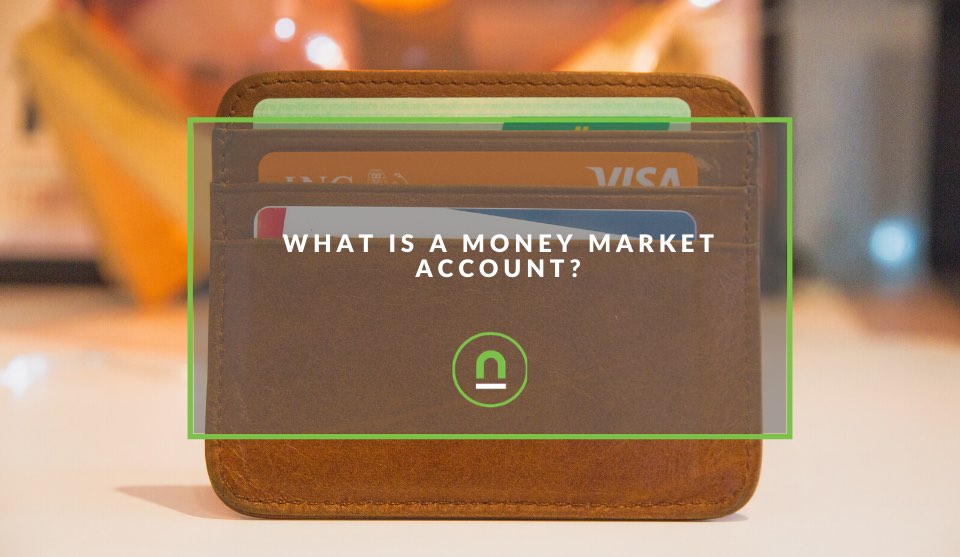Recent posts

Money Talks
XRP vs. Stablecoins: Which Is Better for Cross-Border Payments in 2026?
28 January 2026

Press Releases
Sleep Expert Cautioning Against TikTok’s ‘Mouth Taping’ Trend
28 January 2026

Press Releases
Why Vintage Watches Are the Hottest Trend in 2026
27 January 2026

Press Releases
Africaworks Accelerates The Rollout Of Real Estate Investment Platform
20 January 2026
Popular posts
Extravaganza
Trending Music Hashtags To Get Your Posts Noticed
24 August 2018
Geek Chic
How To Fix iPhone/iPad Only Charging In Certain Positions
05 July 2020
Extravaganza
Trending Wedding Hashtags To Get Your Posts Noticed
18 September 2018
Money Talks
How To Find Coupons & Vouchers Online In South Africa
28 March 2019
What Is A Money Market Account?
15 December 2019 | 0 comments | Posted by Che Kohler in Money Talks
Regardless of how the economy is performing, making saving a habit is always a good option. Making sure you have reserves stored away so you can:
- Pay for emergency
- Take advantage of new investment opportunities
- or saving for a big-ticket purchase
But that doesn't mean you should be keeping it under your mattress. Banks offer a host of saving mechanisms all suited to different uses. Even if you want your money to keep up with inflation and earn you a fraction more, it's always a good idea to shop around for savings options offered by your bank or accredited financial institutions.
If you're looking for a way to store your money in the interim, earn interest but still have unrestricted access to your funds, then a money market account may be just what you need.
What is a money market account?
A money market account (MMA) also referred to as money market deposit account (MMDA) is an account that pays interest based on current interest rates in the money markets.
The interest rates paid are generally higher than those of savings accounts and transaction accounts but may require a sizable amount of capital. Some banks will require higher minimum balances in money market accounts to avoid monthly fees and to earn interest.
How does a money market account work?
A money market deposit account functions just like a checking or savings account with you having unrestricted access to your funds. You'll sign up for this type of account at your bank, and likely won't notice any difference from a regular bank account you'd set up, and it should reflect as a sperate account on any of your banking system interfaces.
The change, however, comes when you deposit your funds into a money market, as your monthly interest compounds on your balance. Banks tend to encourage members toward money market accounts, especially if they maintain a high balance.
What are the pros of a money market account?
- Receive some of your bank's best rates.
- Access funds more easily than with most savings accounts, which might be helpful in an emergency.
- Have a safe place to keep a large chunk of money, protected by insurance.
What are the cons of a money market account?
- Funds might be too easy to spend.
- Some accounts require high minimum balances to open or avoid fees.
- In many cases, savings accounts pay just as much interest.
Is a money market account right for you?
You may want to consider opening a money market account if you can relate to the following:
- You keep high balances in your checking account
- You write a few checks or make a few debts each month
- You don't want to commit to other types of savings accounts that lock up your money for a certain amount of time
Remember that because of the transaction limits, a money market account probably isn't the right choice if it's for regular monthly expenses. If you do want to open a money market account, do your research and find one with a competitive interest rate, so you make the most of your money, and the time it's sitting in the fund.
The best uses for money market accounts
A money market account is useful for the money you might need in the relatively near future. They allow you to earn a small return while keeping the funds safe and accessible. They're especially useful for large, infrequent expenses such as:
- Emergency funds
- Budgeting for quarterly tax payments
- Tuition
- Building a deposit for a large purchase
Where can I get a money market account in South Africa?
- Absa - offers a money market fund
- Capitec - doesn't offer a money market account
- FNB - offers a money maximiser account
- Nedbank - offers a money trader account
- Standard bank - offers a money market account & money market select
- investment account for high balance holders
Tell us your saving story
Have you started to try and improve your savings? How is it going? Do you have any tips you feel should be added to the list? Share it with us in the comments and let's help South Africans save even more.
Do you seek financial help?
Find a financial advisor or financial consultant in your area
Get started with nichemarket
If you are a financial adviser and would like more leads then why not list your business with nichemarket. Registering with nichemarket is easy; all you will need to do is head over to our sign up form and follow the instructions. If you require a more detailed guide on how to create your profile or your listing, then we highly recommend you check out the following articles.
Recommended reading
If you enjoyed this post and have the time to spend diving deeper down the rabbit hole, then we suggest you check out the following posts about improving your finances in South Africa.
- How To Never Pay Full Price At South African Cinemas
- How To Find Local Freelance Work In South Africa
- Over 40 South African Tech Business Ideas That Require Little To No Capital
- How South Africans Can Save Money Each Month
- The Pros and Cons Of Tap and Go Cards
Tags: Saving, Personal Finance
You might also like
Common ASO Mistakes African App Developers Make
09 January 2026
Posted by Daniel Davis in Industry Experts
ASO is Localisation, Not Translation: Failing to research specific local search terms and cultural nuances is the biggest ASO error in African market...
Read moreThe South African Industrial Tech Revolution
05 January 2026
Posted by Stephen Johnson in Ace of Trades
Explore how cutting-edge software and technology are driving the South African industrial tech revolution, optimising operations and boosting global ...
Read more{{comment.sUserName}}
{{comment.iDayLastEdit}} day ago
{{comment.iDayLastEdit}} days ago
 {{blogcategory.sCategoryName}}
{{blogcategory.sCategoryName}}


